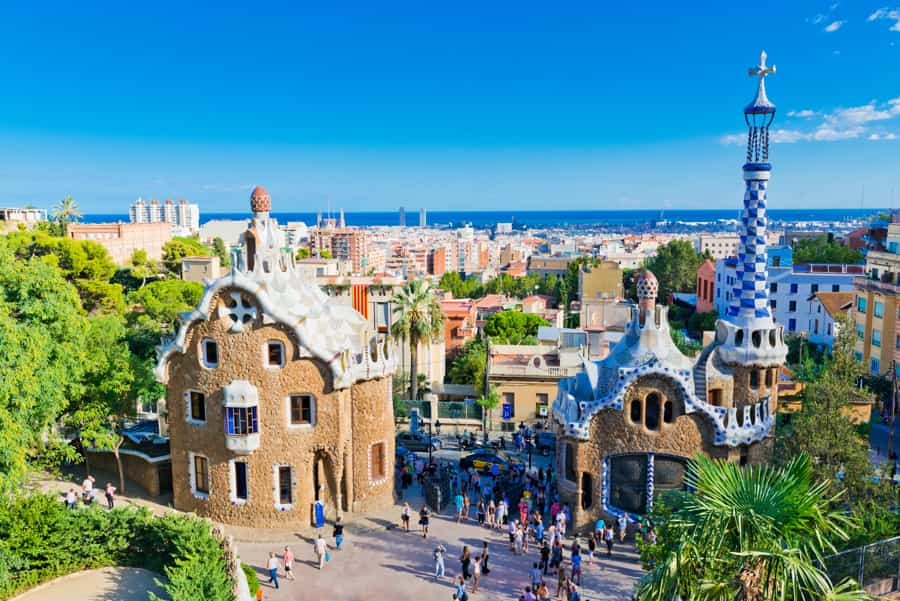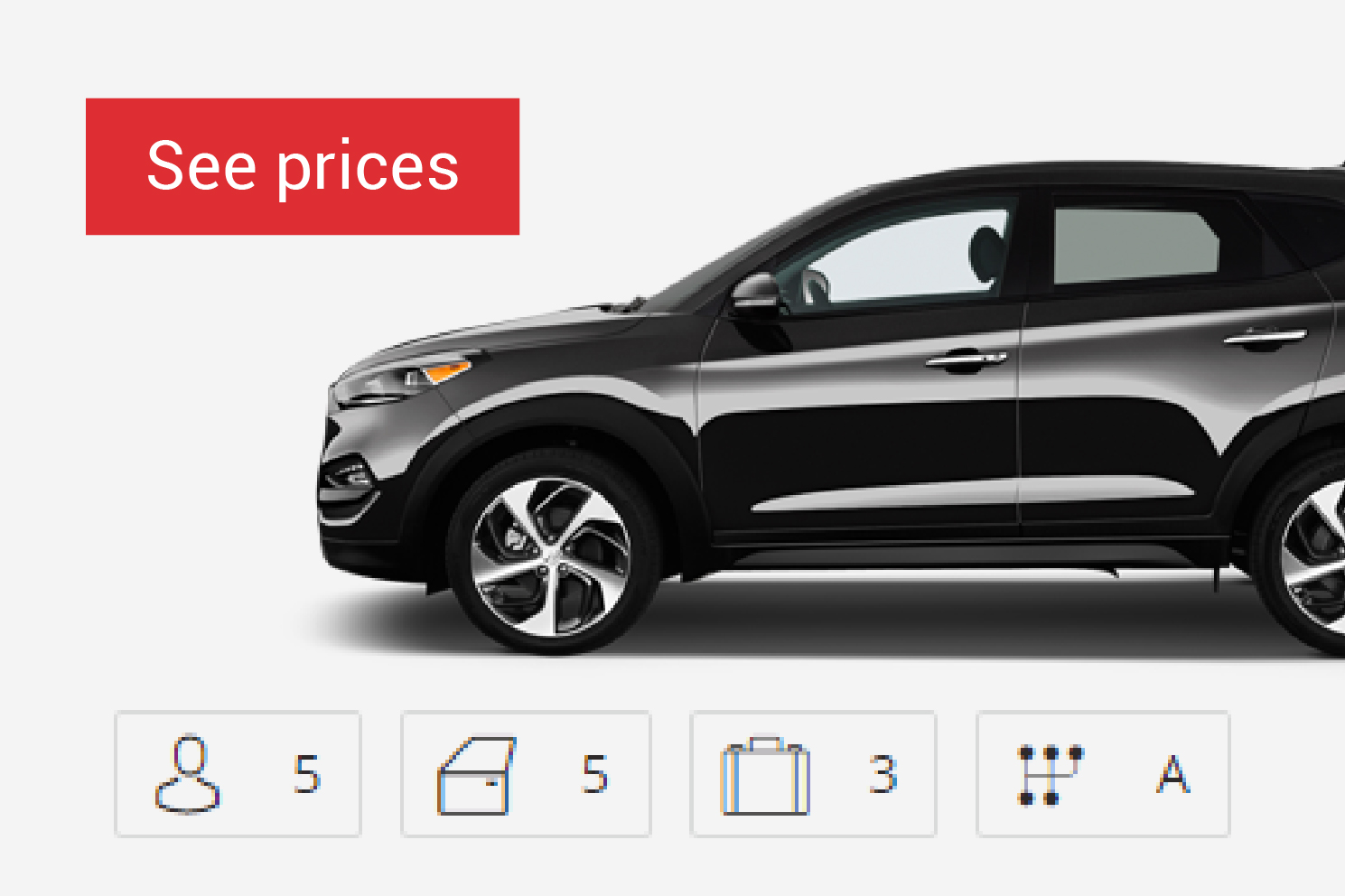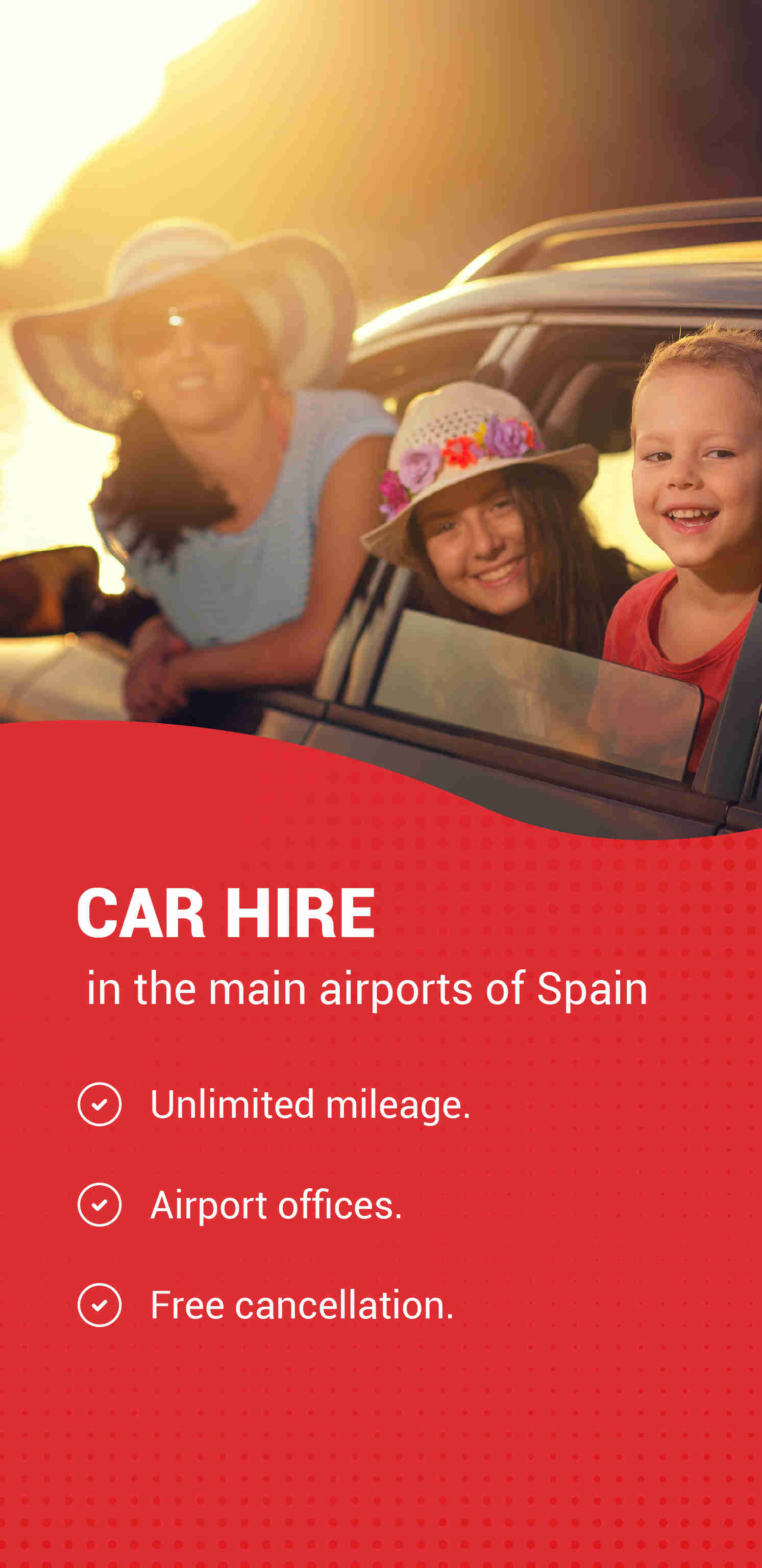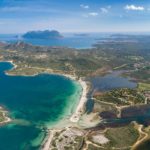This post is also available in: Spanish German Portuguese Greek
When we talk about Park Güell, we are talking about one of the largest green spaces in the city of Barcelona. It’s also one of the most emblematic tourist attractions in Barcelona.
Where is Park Güell located?
Park Güell sits between the neighbourhoods of La Salut, Vallcarca i els Penitents, Coll, Carmel and Can Baró, in the districts of Gràcia and Horta-Guinardó.
More than 75,000 people live in the area and enjoy the green spaces of Park Güell. Its location on the hill of Muntanya Pelada and Carmel makes this green space a unique place of leisure for locals and visitors alike. Simply put, Park Güell is one of Barcelona’s must-see attractions.
Origins of Park Güell
Work started on Park Güell in the first fifteen years of the 1900s and it was finished in 1926. It was created and founded by Eusebi Güell.
Eusebi Güell was a count and rich entrepreneur from a bourgeois Catalan family, and a close friend and patron of Antoni Gaudí. Gaudí not only designed the structures in Park Güell, but he also designed the Güell Palace and other spaces belonging to this influential member of early 20th century Barcelona society.
Güell and Gaudí envisaged the park as a space in the city with an incomparable natural landscape that would also have high-quality, technologically advanced homes. It was to be a coming together of luxury, symbolism and mythology in a natural setting, infused with the political, religious and social ideals of the age.
What to see and do in Park Güell: a good place to visit in Barcelona
As we have said, Park Güell is so wrapped in artistic symbolism it’s almost like visiting a museum. So here are the must-see spots if you visit Park Güell. Take note!
- The entrance to Park Güell. At the portico entrance, Gaudí referenced the industrial advances of the early twentieth century and the history of the Catalan bourgeoisie with Greco-Roman and religious allegories symbolising the entrance to Paradise.
- The Park Güell Pavilions. The porter’s lodge and administration pavilions are two buildings that best capture the essence of Gaudí. Their organic structure, integrated into the natural landscape around them, and the use of the Catalan vault technique is a magnificent representation of Gaudí’s art in full splendour.
- Park Güell stairway. The stairway starts from the entrance and leads towards the Hypostyle Hall. At its centre, three fountains form part of a group of sculptures. Among these, a two-metre dragon/salamander figure stands out, which is made of brick and features a technique known as trencadís mosaic.
- Park Güell Hypostyle Hall. Also known as the Hundred Columns Room, it was designed to be used as a central market for local residents.
- Nature Square. This Greek-style theatre, designed to hold meetings and cultural events, stands out for its architectural touches including the amphitheatre, the side columns and its elevated location, as well as the use of the trencadís technique.
- The Calvary. Gaudí originally wanted to build a chapel on this promontory, but the project was abandoned in favour of a monumental stone cross symbolising the Passion of Christ.
Do you have to pay admission to visit Park Güell?
Park Güell is one of Barcelona’s most visited attractions, and in order to control access to it, a fee has been charged since 2013 to enter the monumental area of the park. However, access to the rest of the park is free and unrestricted.
Other things to see in Barcelona besides Park Güell
Planning a trip around Barcelona presents countless options. If you arrive at T1 or T2, it’s best to pick up your rental car at Barcelona airport and get on the road straight away. If you arrive by train to Barcelona and you want a vehicle so you can get around Catalonia at your own pace, car or even motorbike rental at Barcelona Sants train station is another option available to you.








